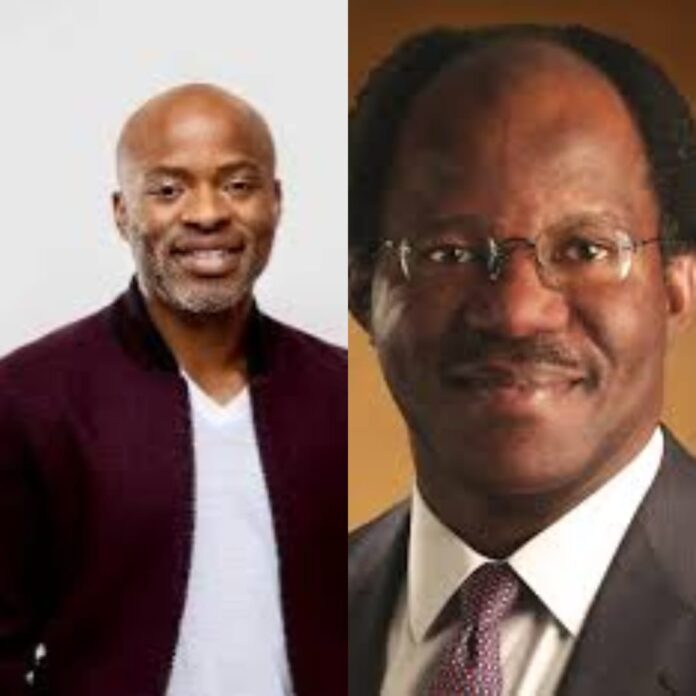The New Face of the American Dream
The 2025 Forbes list of America’s Richest Immigrants reveals a record 125 foreign-born billionaires shaping the U.S. economy. Among them, Nigerian-born entrepreneurs stand tall, embodying resilience, innovation, and a distinct immigrant mindset that fuels their billion-dollar enterprises. This year’s list underscores Nigeria’s growing influence in global finance and tech, with two self-made titans—Adebayo Ogunlesi and Tope Awotona—carving paths from Lagos to Wall Street.
Nigeria’s Finest: Profiles of Power
Adebayo Ogunlesi: The Private Equity Pioneer
From humble beginnings in Sagamu, Nigeria, to Harvard Law and Oxford, Ogunlesi founded Global Infrastructure Partners. His firm’s landmark $12.5 billion acquisition by BlackRock in 2024 cemented his legacy in reshaping global infrastructure investing. GIP’s portfolio includes major international airports like Gatwick and Edinburgh, plus energy projects spanning three continents. With a net worth of $2.4 billion, this student visa recipient ranks #77 on Forbes’ list.
Tope Awotona: The Silent Tech Disruptor
A Lagos native who moved to Atlanta at 15, Awotona bootstrapped scheduling platform Calendly using $200,000 of his life savings. His journey includes surviving corporate layoffs and personal tragedy before achieving a $3 billion company valuation. Today, Calendly serves over 20 million users globally. With $1.4 billion, Awotona ranks #106 among America’s wealthiest immigrants.
| Name | Net Worth | Industry | U.S. Entry | Key Business Milestone |
|---|---|---|---|---|
| Adebayo Ogunlesi | $2.4B | Private Equity | Student Visa | Sold GIP to BlackRock |
| Tope Awotona | $1.4B | Software | Age 15 | $3B valuation for Calendly |
The Bigger Picture: Africa’s Rising Influence
The Forbes list features eight African-born billionaires from six nations—a testament to the continent’s expanding global footprint. Beyond Nigeria’s duo, South Africa dominates with three entries: Elon Musk, Patrick Soon-Shiong, and Rodney Sacks. Egypt, Morocco, and Kenya complete the mosaic with Haim Saban, Marc Lasry, and Bharat Desai respectively. Immigrant billionaires now constitute 14% of all U.S. billionaires and control 18% of total U.S. billionaire wealth—up from 92 in 2022 to 125 in 2025.
The Immigrant Mindset: Why Nigerians Succeed
Forbes attributes this wealth surge to a potent blend of resilience and audacity. Navigating Nigeria’s volatile markets—with currency swings and infrastructure gaps—trains entrepreneurs for high-stakes U.S. ventures. Both Ogunlesi and Awotona leveraged U.S. education as springboards while maintaining ties to their roots. This reverse brain drain sees them returning expertise to Africa while scaling U.S. operations—Ogunlesi advises Nigerian sovereign funds while Awotona invests in African tech startups.
Beyond Wealth: Impact and Legacy
These billionaires generate tangible impact: Calendly employs 400+ in Atlanta while GIP-funded infrastructure created 10,000+ U.S. jobs. Their philanthropy includes Ogunlesi funding scholarships for African students at Ivy League schools and Awotona supporting Atlanta tech incubators for minority founders. Crucially, they dismantle stereotypes by proving African success stems from ingenuity—not resource extraction—changing perceptions through innovation.
Challenges and the Road Ahead
Systemic hurdles persist despite success. Visa barriers remain critical—Awotona waited 15 years for a green card, a common experience among immigrant founders. African entrepreneurs receive less than 1.2% of U.S. venture funding despite demonstrated high-growth potential. The next generation of Nigerian founders like Maya Horgan and Fred Oyetayo need ecosystem support to scale their ventures globally.
Rewriting the Narrative
Forbes’ 2025 list validates more than wealth—it confirms a seismic shift. Ogunlesi and Awotona represent Nigerians leveraging U.S. opportunities to solve global problems. Their journeys from Lagos to Wall Street prove the American Dream still resonates, now with a distinct Naija accent. These pioneers create opportunities where others see voids, turning immigrant vision into America’s newest competitive advantage.


